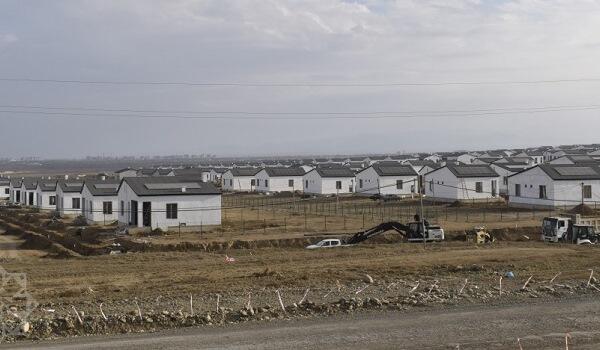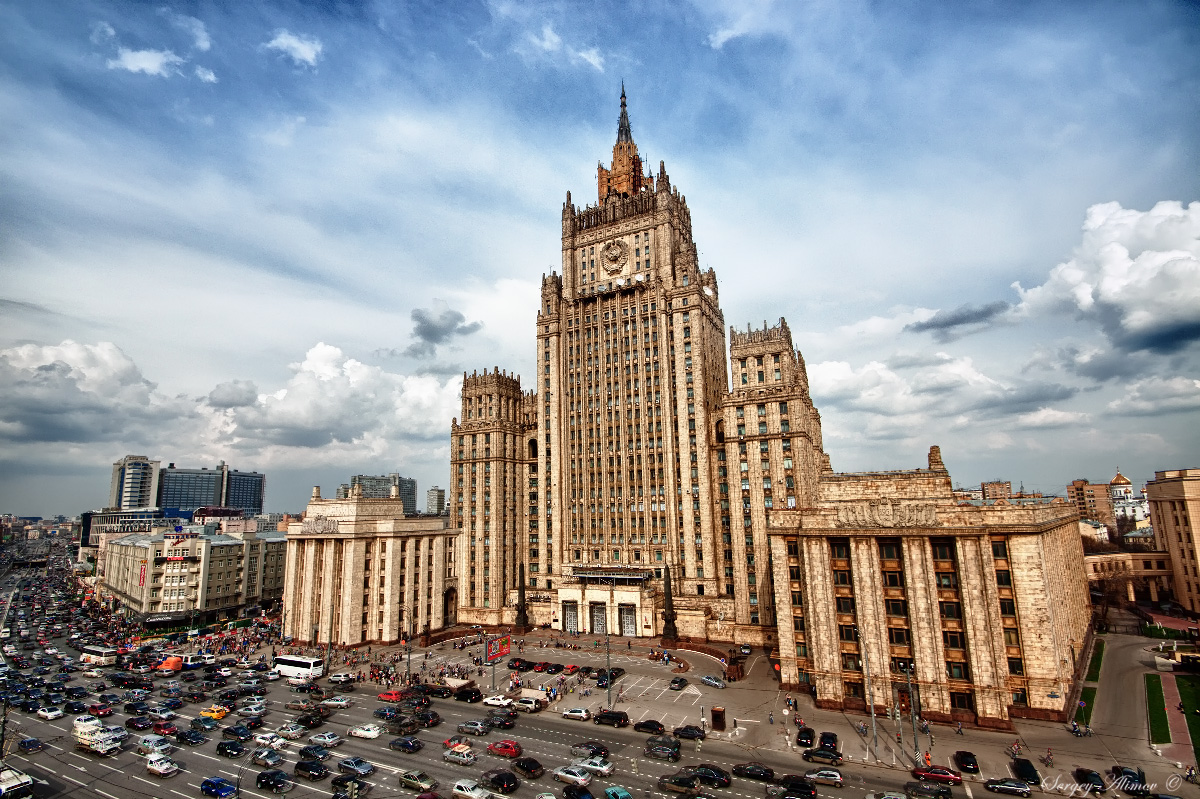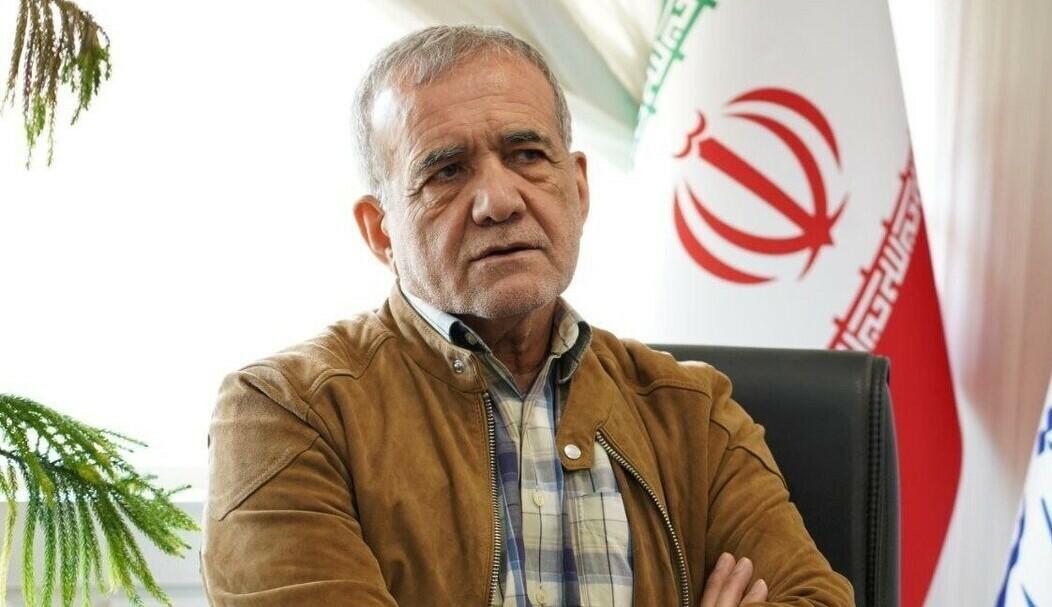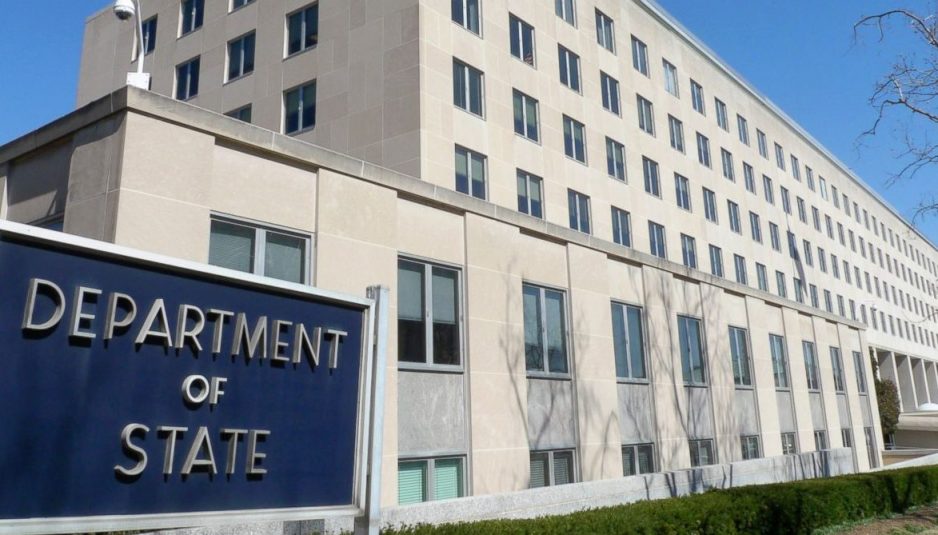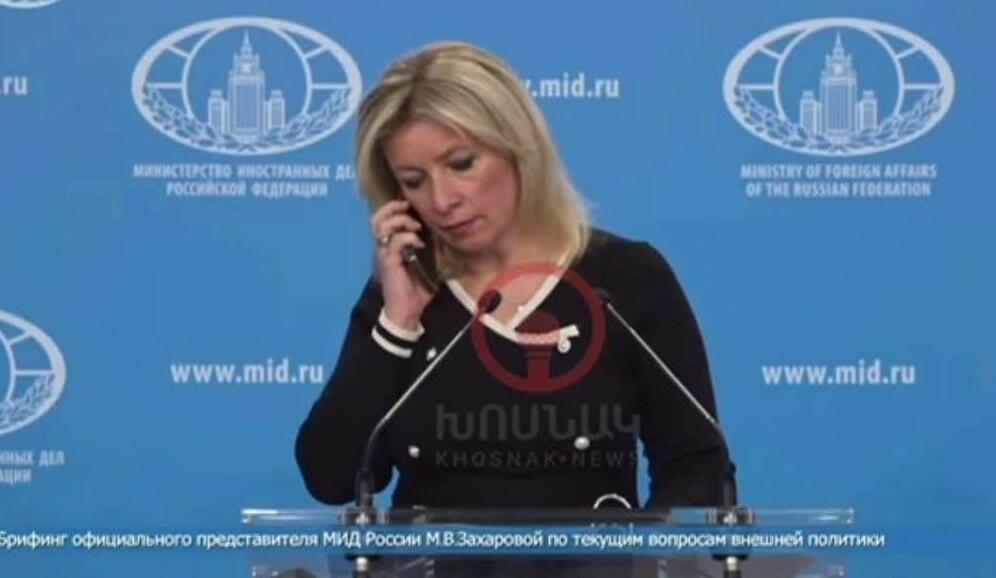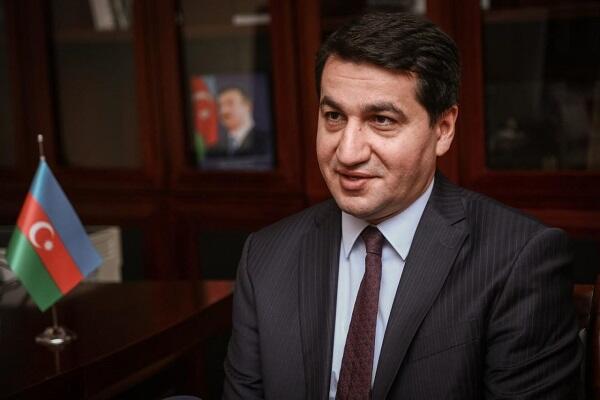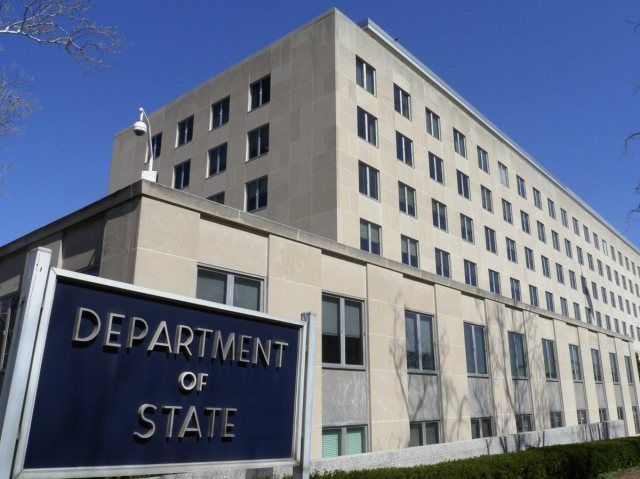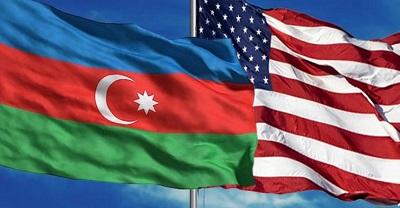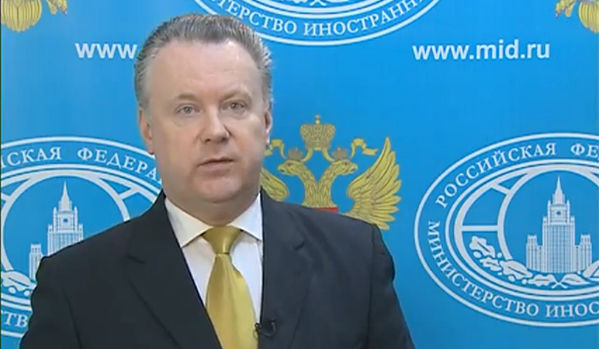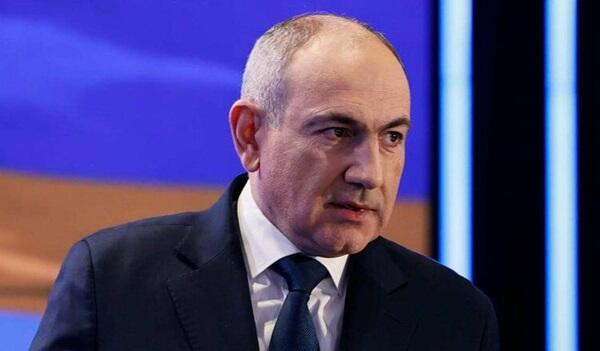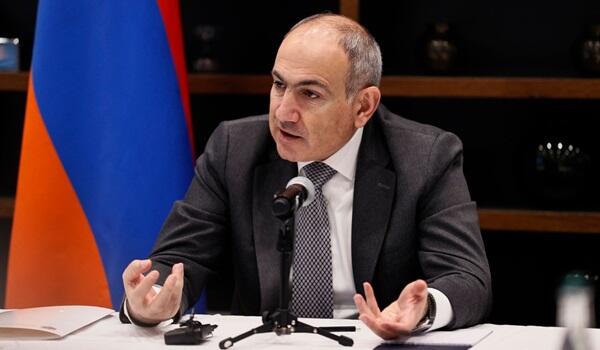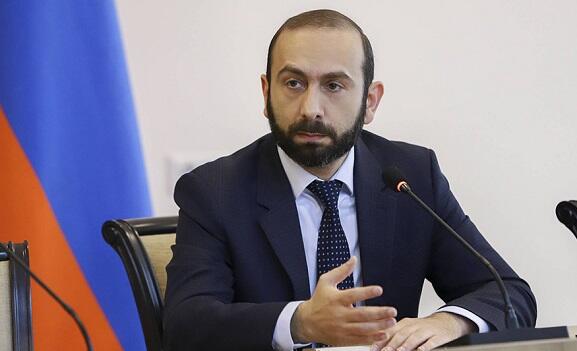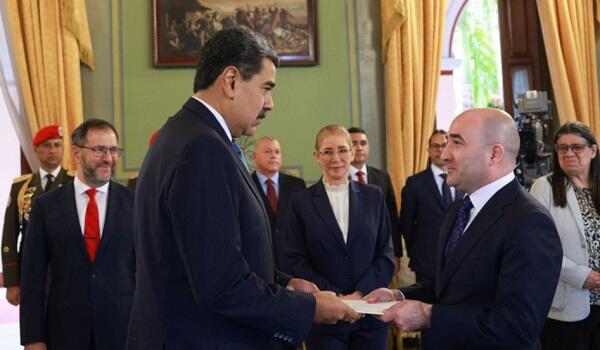Assistant to the President of Azerbaijan - Head of the Foreign Policy Affairs Department of the Presidential Administration Hikmat Hajiyev gave an extensive interview to the Slovak publication Hospodárske noviny, in which he spoke about Baku's economic policy, its strengthening role in ensuring Europe's energy security, and why 'green fanaticism' should be set aside.
Axar.az reports that the presidential aide called the countries of Central and Eastern Europe 'traditional friends and partners' of Azerbaijan.
"We maintain historical ties and friendship with them, especially when we talk about countries like the Czech Republic or Slovakia. I am very grateful that in June I was able to participate in the Globsec security conference in Prague. Sometimes we diplomatically and jokingly say that it is convenient for us to communicate with our Slovak or Czech friends, as we understand each other very well. There are many similarities between us, for example, we face the same challenges and difficulties. In this sense, it can be said that you are an important partner for us, through which we can convey our message to the European Union and other international institutions. If we consider all these aspects, there is only one conclusion - Central European countries are our reliable partners," Hajiyev indicated.
He also noted that energy is an important component of Azerbaijan's relations with other countries, particularly with Slovakia.
"After all, thanks to energy, we have very good contacts with Slovakia and other countries. However, I will repeat once again - our relations are based on historical context. And in the past, we had many mutual human and political connections. Along with this tradition, we are working on developing economic and trade relations. And it is energy that is a key component of Azerbaijan's cooperation and partnership with the European Union states. Supplies of Azerbaijani gas to the European market are carried out through the Trans Adriatic Pipeline. Currently, Azerbaijan directly supplies gas to eight European countries. However, in total, 12 European states receive it. We have proven many times that we are a reliable partner. In addition, cooperation in the field of gas and energy occurs without any political connotations. This is exclusively a commercial issue, pure business. Of course, the energy security of our partners is important to us," Hikmat Hajiyev added.
The assistant to the president of Azerbaijan also drew parallels between energy security and the current political situation in the world, particularly noting the expansion of energy cooperation against the backdrop of the Russian-Ukrainian war.
"European Commission President Ursula von der Leyen visited Azerbaijan in 2022. This happened almost immediately after the start of the Russian-Ukrainian war. At that time, the EU had an urgent need for a new energy impulse. And it was Azerbaijan that played a key role in addressing it. We provided Europe with the necessary gas supplies. And the visit of Prime Minister [of Slovakia Robert] Fico to Baku was part of these discussions. As far as I know, Slovakia has already imported a certain volume of Azerbaijani gas. We are certainly ready and determined to increase mutual cooperation and supply new volumes of gas here. But for this, we need a new level of cooperation with the EU, especially in terms of infrastructure. That's because although Azerbaijan has rich gas reserves in the Caspian Sea, the capacity of the Trans-Adriatic Pipeline, or Southern Gas Corridor, is already filled. We need to expand them technically. Besides, Europe also needs gas. Therefore, it is necessary for both sides to have a realistic approach to this issue. Given the current reality in the world, we want to establish a new strategic energy cooperation based on the Memorandum of Understanding that we signed with the EU. But in order to implement this, we need long-term contracts. Now the ball is in the European Union's court. We are just waiting for its reaction," said Hajiyev.
He also spoke about Azerbaijan's desire for mutually beneficial cooperation in the context of gas supplies to the EU against the backdrop of Brussels' intention to completely stop importing Russian energy.
"In fact, we do not intend to engage in any competition with anyone for consumers. We have always sought mutually beneficial cooperation. Besides, if my information is correct, Russian gas volumes significantly exceed 100 billion cubic meters. We are not competing with Russia over who will satisfy European needs – our reality is completely different from Russia's. We have our own capacities, and I believe that thanks to Azerbaijani gas, the EU will be able to reduce pressure on the energy security of its eastern wing. This is extremely important for countries like Slovakia, Bulgaria, or others where energy consumption, especially gas, is about one, two, or three billion cubic meters, maybe a little more. Technically speaking, meeting these requirements is quite simple. We can easily do this at any time. The gas is there, and we have the necessary infrastructure. We just need a long-term commitment from the European Union," said the presidential aide.
He noted obstacles to further expansion of energy cooperation with the EU: "I think that first of all, we need to put aside what I would call green populism or even fanaticism. Yes, we too are convinced that green and renewable energy sources constitute the future for all of us. After all, we have already started working seriously on them. But we must remain realistic. Our industry needs energy that it can afford. Our cities and villages need it too. And today, there simply is no real alternative to gas. It is a key component in the transition process to green energy. This is how we should look at it. Azerbaijan, as a responsible and reliable partner, is ready to cooperate in this process."
Hikmat Hajiyev spoke about the details of the foreign policy line followed in Baku.
"I think that in politics, we see a lot of bias and prejudice. Slovakia and Azerbaijan are more or less similar countries. If you are in such a position and you are surrounded by partners who are completely different from you, then, in my opinion, finding different partnership models best serves the interests of your country. And this is exactly the foreign policy that Azerbaijan pursues. On the one hand, our neighbor is Russia, with which we try to have completely normal relations. Then there is Iran, with which we also want to have good relations. We have the same with Israel and China. We are also building good bilateral relations with the United States. So for us, it's not about excluding anyone, but about mutual inclusivity, inclusion in the existing space. We are convinced that one set of bilateral relations definitely should not exclude any other form of bilateral cooperation," he noted.
The presidential aide also touched upon Turkiye's strengthening position in the global arena, particularly in the context of the Russian-Ukrainian war, and the strategic alliance between Baku and Ankara: "Turkiye has always been a key player. We believe that President [of Turkiye Recep Tayyip] Erdogan's policy deserves special praise. And especially for how he was able to transform Turkiye and make it a competitive country. But Turkiye is not just a regional player – it has become a true global actor. Look at the events in Russia, Ukraine, the Middle East, the Balkans, or anywhere else where events of global significance are taking place. Everywhere, Turkiye plays a positive role. And it is necessary for it to continue playing this role in the future.
Turks are indeed brothers of Azerbaijanis, our strategic allies. We even call these relations - "One nation, two states." Therefore, it is completely natural that as good brothers of Turkiye, we are very happy to see its global position growing. I would venture to say that Turkiye, especially Istanbul, would be the right place to make peace. Not to mention that it is a beautiful city, created for this kind of dialogue. However, this is nothing new - Turkiyehas always been a peacemaker. Consider at least the fact that through the Black Sea, it borders both countries, Russia and Ukraine. And it has special relations with both. In addition, it is a NATO member with a significant global position. Given all these parameters, I am convinced that Turkiye is the right player to act as a mediator in this conflict. It can provide both sides with a suitable platform and complete infrastructure for peace negotiations. And from its side, I see a sincere and strong determination to end this war and achieve peace."
During the interview, Hikmat Hajiyev once again outlined Azerbaijan's position on the Russian-Ukrainian war: "Russia is our neighbor. We have good neighborly relations with it. And having good relations with all our neighbors is the number one priority not only for Azerbaijan but for every country in the world. But the same applies to Ukraine. You yourself know very well that during the Soviet Union, we lived under the same roof with Russians and Ukrainians. We have long-term interpersonal relationships with both countries. And we continue them after the collapse of the Soviet Union. Many Azerbaijanis live either in Russia or in Ukraine. We have many mixed marriages. So it is really a great tragedy what is happening there today. Azerbaijanis literally have their hearts torn when they see tragic images from the ongoing conflict on television or the internet. At the same time, I must emphasize one more thing - the main cornerstone of our policy is the absolutely inviolable principle of territorial integrity. Our country has suffered greatly in the past from the violation of this principle. Therefore, we unequivocally support the protection of the territorial integrity of other countries. But at the same time, we maintain a distance from interfering in any way in the military confrontation between Russians and Ukrainians. <...> We keep a safe distance from supplying any military components in this conflict. We provide only humanitarian aid to Ukraine, especially to children who suffer the most in it. We also supply some necessary equipment, such as electric generators. In no way do we participate in military assistance; we are not part of any such actions. And because we belong to the so-called non-aligned countries."
Hikmat Hajiyev, responding to a question about Fico's visit to Yerevan, also touched on the normalization of relations between Azerbaijan and Armenia.
"First of all, I want to emphasize that peace between Armenia and Azerbaijan already exists. The war has ended. When you look at our borders, you see calm and stability everywhere. I would even say that a new status quo has emerged in the region, based on legality and legitimacy. Unfortunately, the previous state stemmed from the very fact of Armenian military occupation of Azerbaijani territories. But we have already left that stage in the past. Instead, we look to the future. We have agreed on the text of a peace agreement. <...> You can have peace on paper, but the situation on the ground is sometimes completely different. Now we have just the opposite. There is peace on the ground, the Armenian-Azerbaijani border is stable, and Karabakh is no longer an agenda item. The soldiers of the Armenian occupation forces have completely withdrawn from all Azerbaijani territories. But for the peace agreement to finally come into force, one last step is needed. We expect Armenia to change the text of its constitution, which still contains clauses about territorial claims against Azerbaijan. In any case, it is good that we maintain a bilateral channel of communication with the Armenians. We talk about problematic issues with them completely openly, without any mediation. And in the agenda of our conversations, you will find really very important chapters. The key fact is that elements of military confrontation remain completely outside any agenda. Yes, there is still a dispute between us. But disputes between neighboring countries are sometimes completely normal. After all, we see this between some EU member states as well. But we have diplomacy and dialogue to resolve disputes. And we have managed to move relations with Armenia from military confrontation to a dispute. I think this is a good sign," said Hikmat Hajiyev.
He also spoke about relations between Azerbaijan and the United States after President Donald Trump's arrival at the White House.
"Under President Joe Biden's administration, certain problems arose in cooperation with the United States. It imposed completely unnecessary sanctions on us. And it had not developed any strategic regional vision. After the Trump administration came in, however, there were proposals to elevate the level of mutual cooperation to a strategic partnership," the presidential aide noted.
He also touched on the economic projects of the State Oil Company of the Azerbaijan Republic (SOCAR).
"<...> Such cooperation benefits both sides; it's a win-win situation. By the way, Europe is open to any business with Azerbaijan, just as with any other country, if it is conducted properly and in full compliance with European legislation. This is completely normal. This also applies to SOCAR's business, which fully respects EU laws and legislation. SOCAR, moreover, comes to Europe with its own investments, which contribute to further enhancing European energy security. Yes, the average EU citizen uses the quality services of this company without the slightest problem, which operates not only in Union member states but also, for example, in Switzerland. But again, this is just business, not politics."
Responding to a question about Azerbaijan's interest in nuclear energy, Hikmat Hajiyev noted that "currently this is not a topic of discussion": "We will probably focus more on renewable energy and gas."
In conclusion, the presidential aide noted the potential of the Slovak defense industry and Azerbaijan's prospects in the field of defense industry: "Slovakia has very great potential in this area. You are a country with a developed industry, including the defense market. Azerbaijan is also quite ambitious in this sphere. We are dynamically developing our defense industry. We are particularly interested in some specific areas in the defense segment where our countries could successfully cooperate."
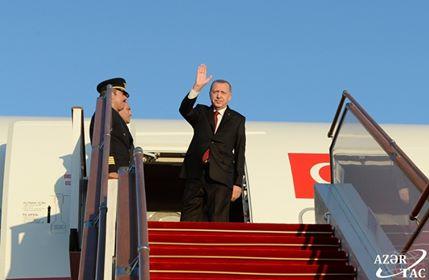

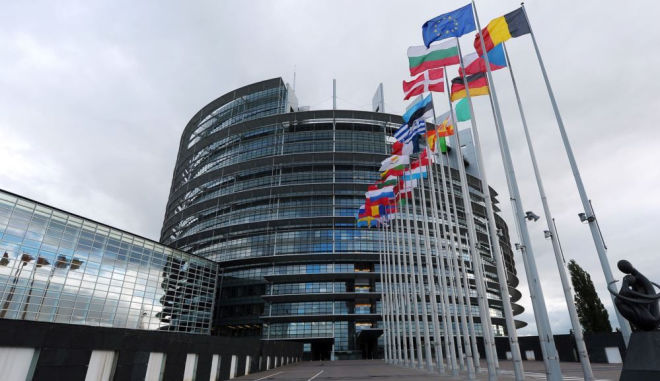
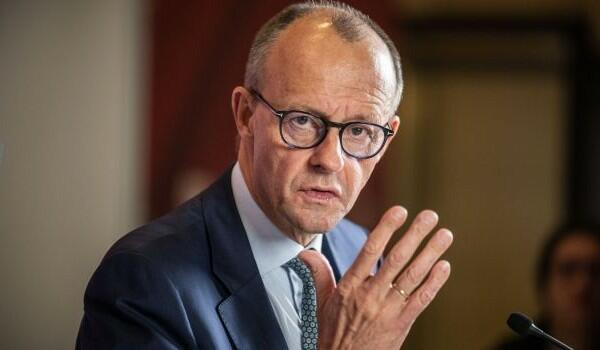
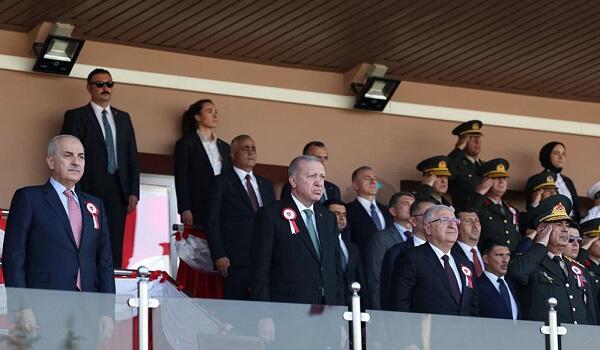
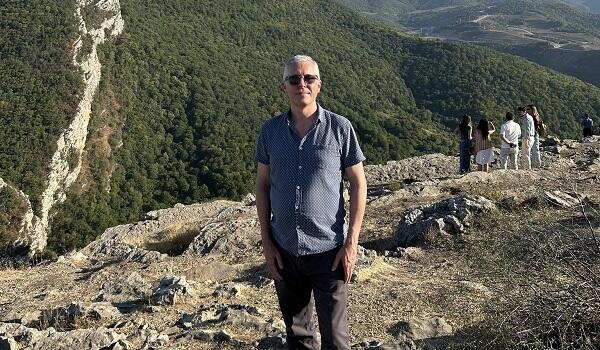

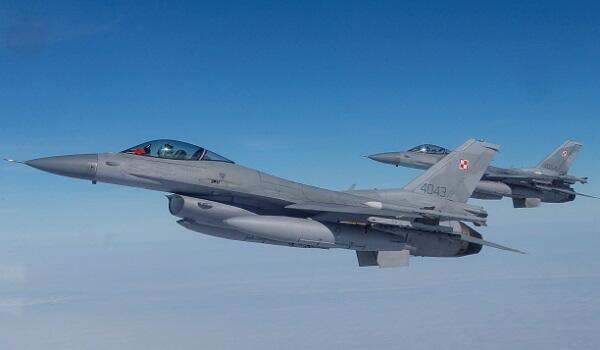
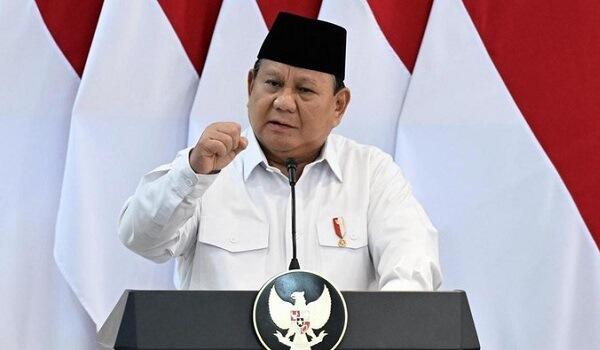
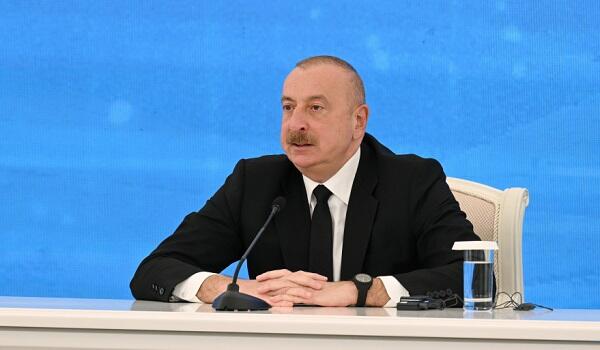



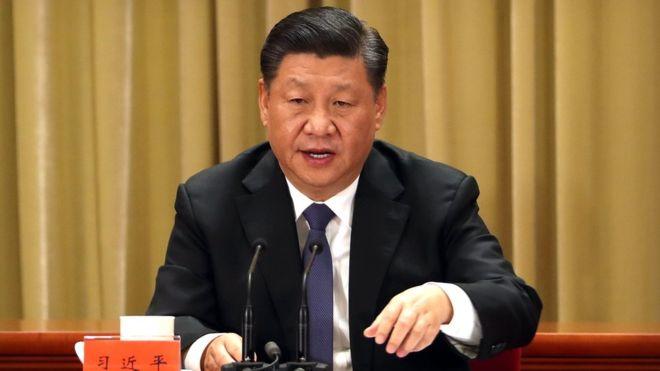
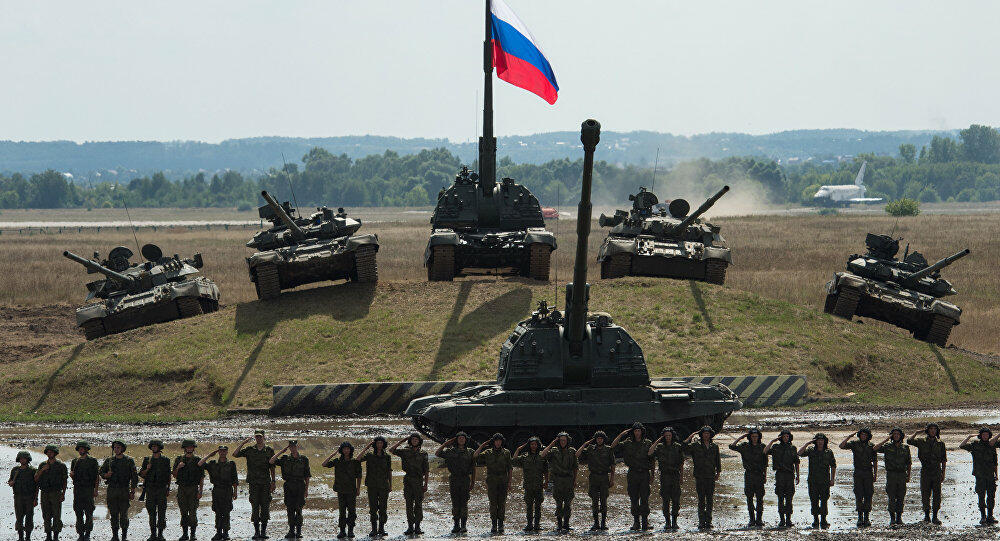

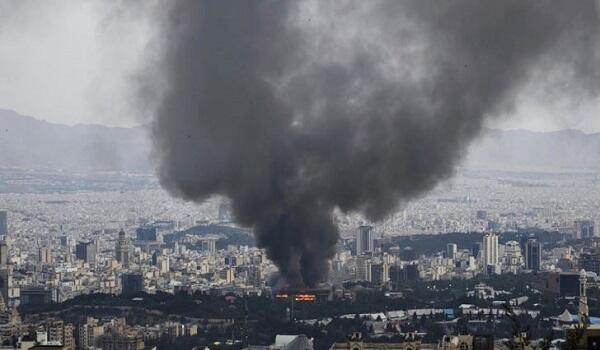
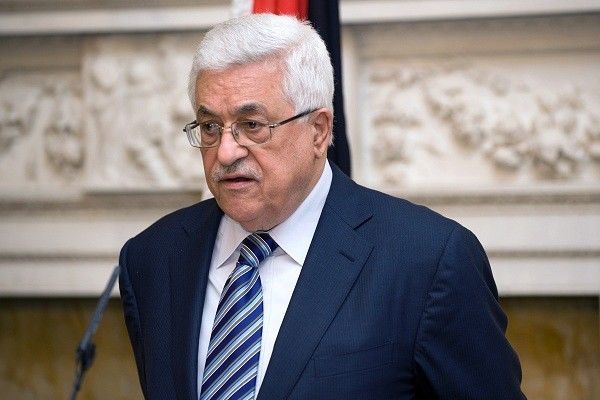
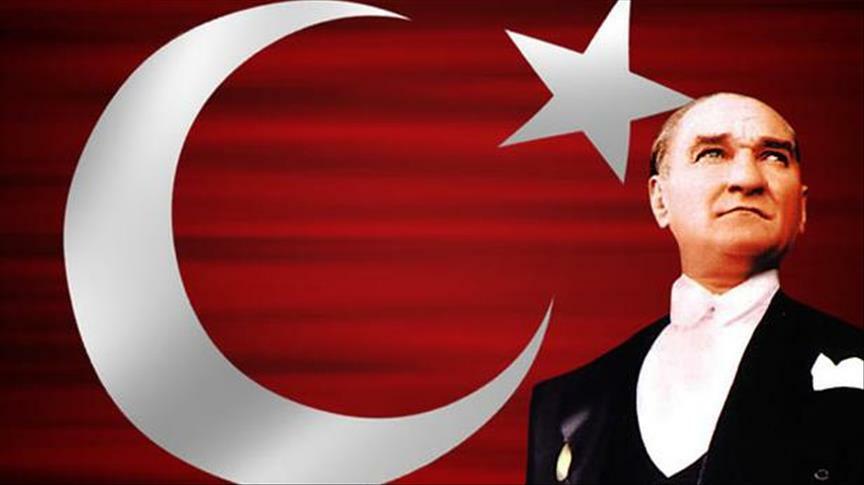
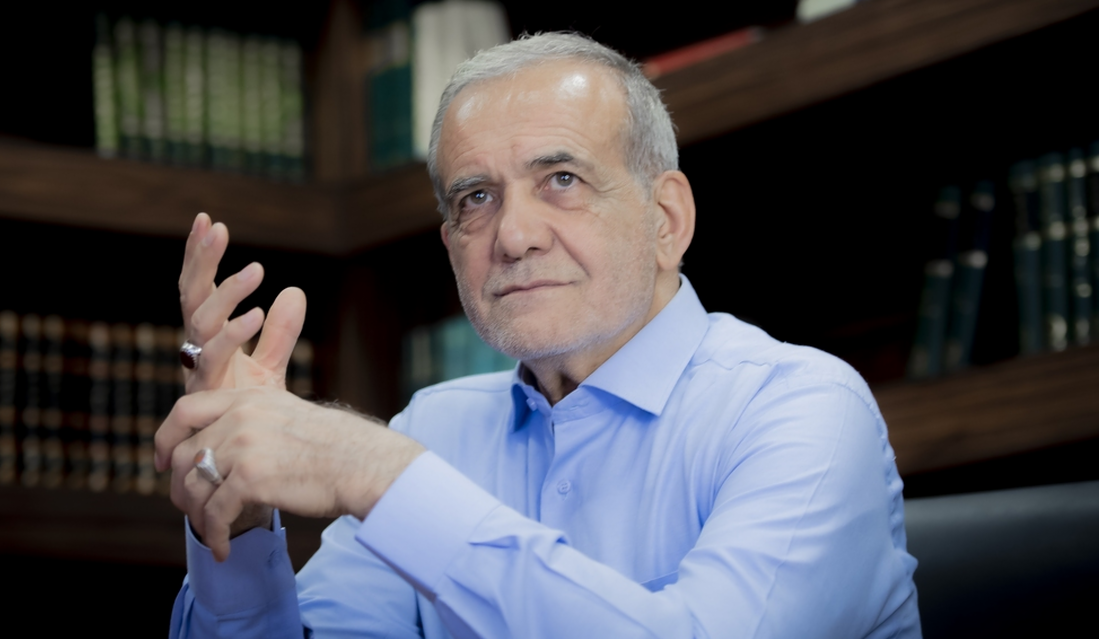

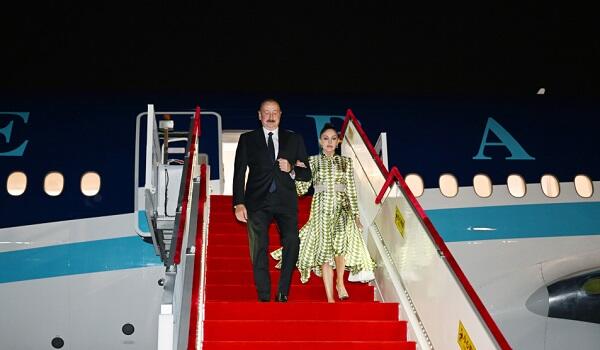
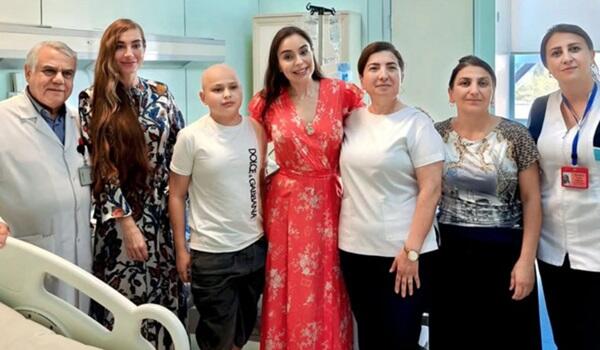
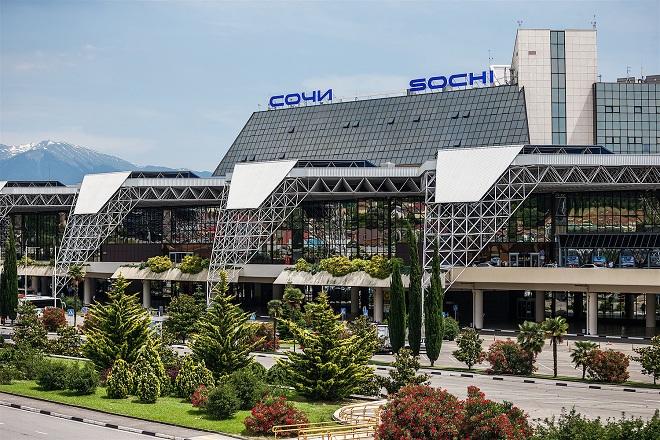
.jpg)
